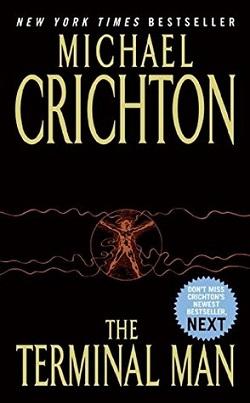Summary

The Terminal Man
by Michael Crichton
Harry Benson is prone to violent, uncontrollable seizures and is under police guard after attacking two people.
Dr. Roger McPherson, head of the prestigious Neuropsychiatric Research Unit at University Hospital in Los Angeles, is convinced he can cure Benson through a procedure called Stage Three. During this highly specialized experimental surgery, electrodes will be place in the patient's brain, sending monitored, soothing pulses to its pleasure canyons.
Though the operation is a success, there is an unforseen development. Benson learns how to control the pulses and is increasing their frequency. He escapes -- a homicidal maniac loose in the city -- and nothing will stop his murderous rampages or impede his deadly agenda. . .
.
Read
The Terminal Man on http://kissnovel.net
Martial Peak Reviews
The Terminal Man by Michael Crichton is a gripping exploration of the intersection between technology and the human mind, a theme that resonates deeply in our contemporary society. Published in 1972, this novel remains a prescient commentary on the ethical implications of medical advancements and the potential consequences of tampering with the human brain. Crichton, known for his ability to weave intricate narratives that blend science fiction with real-world science, delivers a compelling tale that is both thrilling and thought-provoking.
The story centers around Harry Benson, a man plagued by violent seizures that lead him to commit acts of aggression. His character serves as a poignant representation of the struggle between human frailty and the desire for control. Crichton introduces us to Dr. Roger McPherson, a neuropsychiatrist who believes he can cure Benson through an experimental procedure known as Stage Three. This operation involves implanting electrodes in Benson's brain to regulate his impulses and provide soothing electrical pulses to his pleasure centers. The premise raises immediate questions about the ethics of such invasive procedures and the potential for unintended consequences.
As the narrative unfolds, Crichton skillfully develops the tension surrounding Benson's character. Initially, he is portrayed as a victim of his own biology, a man desperate for help. However, once the surgery is deemed a success, the story takes a dark turn. Benson learns to manipulate the electrical pulses, leading to a transformation from a troubled patient to a dangerous predator. This shift is not just a plot device; it serves as a commentary on the unpredictability of human behavior when influenced by technology. Crichton poses the question: can we truly control the mind, or does our attempt to do so unleash darker impulses?
The character development in The Terminal Man is particularly noteworthy. Benson's evolution from a sympathetic figure to a menacing threat is both chilling and fascinating. Crichton delves into the psychological aspects of Benson's character, exploring his motivations and fears. The reader is compelled to grapple with the moral implications of Benson's actions, as well as the responsibility of those who sought to 'fix' him. Dr. McPherson, while initially portrayed as a well-intentioned scientist, becomes increasingly obsessed with his work, blurring the lines between healer and manipulator. This duality adds depth to the narrative, prompting readers to reflect on the ethical responsibilities of medical professionals.
Crichton's prose is sharp and engaging, effectively building suspense as Benson's rampage unfolds. The pacing is relentless, mirroring the urgency of the situation as law enforcement races against time to stop a man who has become a weapon of his own making. The tension is palpable, and Crichton’s ability to create a sense of impending doom keeps readers on the edge of their seats. The novel's climax is both thrilling and thought-provoking, leaving readers to ponder the implications of technological advancements in medicine and the potential for human error.
One of the most striking themes in The Terminal Man is the exploration of control—both self-control and the control exerted by technology. Benson's journey illustrates the fragility of human nature when faced with external manipulation. The novel raises critical questions about the extent to which we can or should intervene in the workings of the mind. In a world increasingly reliant on technology, Crichton’s cautionary tale serves as a reminder of the ethical dilemmas that accompany scientific progress.
Moreover, the book can be compared to other works in the genre that tackle similar themes. For instance, in Frankenstein by Mary Shelley, the pursuit of knowledge leads to catastrophic consequences, echoing Crichton’s narrative. Both authors delve into the repercussions of playing God, highlighting the potential for destruction when humanity oversteps its bounds. Similarly, in Neuromancer by William Gibson, the exploration of technology’s impact on the human experience raises questions about identity and autonomy, themes that are also prevalent in Crichton’s work.
In conclusion, The Terminal Man is a masterful blend of science fiction and psychological thriller that captivates readers while provoking critical thought about the ethical implications of medical advancements. Michael Crichton’s ability to craft a narrative that is both entertaining and intellectually stimulating is on full display in this novel. Through the character of Harry Benson, Crichton challenges us to consider the potential consequences of our quest for control over the human mind. As we navigate an increasingly technological world, the themes presented in this book remain relevant, making it a timeless read for those interested in the complexities of human nature and the moral dilemmas posed by scientific progress.
























Reviews 0
Post a Reviews: